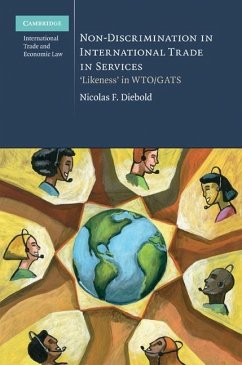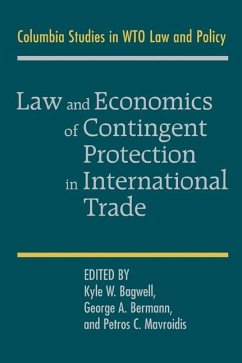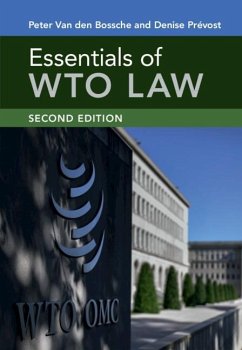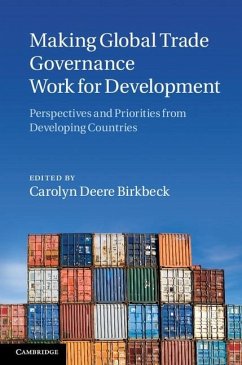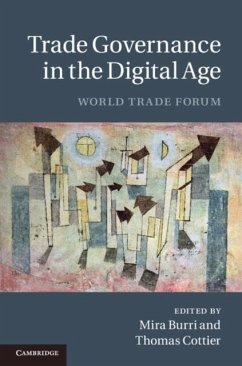
Trade Governance in the Digital Age (eBook, ePUB)
World Trade Forum
Redaktion: Burri, Mira
Versandkostenfrei!
Sofort per Download lieferbar
24,95 €
inkl. MwSt.
Weitere Ausgaben:

PAYBACK Punkte
12 °P sammeln!
The development of new digital technologies has resulted in significant transformations in daily life, from the arrival of online shopping to more fundamental changes in the ways we work and communicate. Many of these changes raise questions that transcend market access and liberalisation, and demand cooperation and coherent regulatory design. International trade regulation has hitherto not reacted in a forward-looking manner to the digital revolution and, particularly at the multilateral level, legal engineering has yielded few tangible results. This book examines whether WTO laws possess the...
The development of new digital technologies has resulted in significant transformations in daily life, from the arrival of online shopping to more fundamental changes in the ways we work and communicate. Many of these changes raise questions that transcend market access and liberalisation, and demand cooperation and coherent regulatory design. International trade regulation has hitherto not reacted in a forward-looking manner to the digital revolution and, particularly at the multilateral level, legal engineering has yielded few tangible results. This book examines whether WTO laws possess the necessary flexibility and resilience to accommodate the changes brought about by burgeoning digital trade. By revealing both the potential and the limitations of the WTO framework, it provides a broad picture of the interaction between digital technologies and trade regulation, links the often disconnected discourses of international trade law, intellectual property and cyberlaw and explores discrete problems in different domains of global trade regulation.
Dieser Download kann aus rechtlichen Gründen nur mit Rechnungsadresse in A, B, BG, CY, CZ, D, DK, EW, E, FIN, F, GR, HR, H, IRL, I, LT, L, LR, M, NL, PL, P, R, S, SLO, SK ausgeliefert werden.





